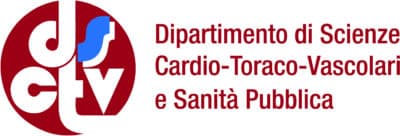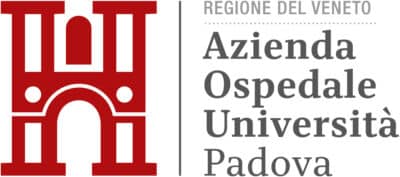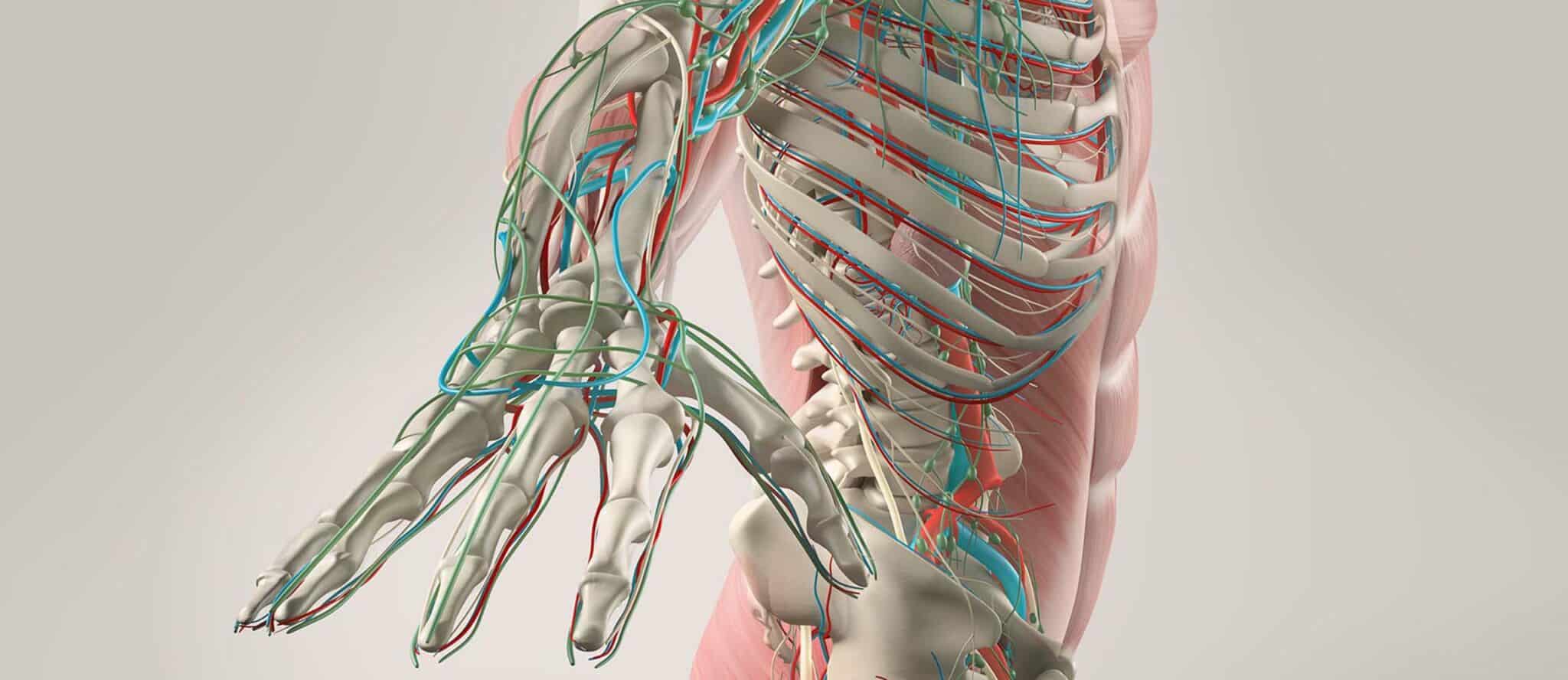

The Master in Lymphology trains physicians and physical therapists, according to their specific professional competencies, in the following areas: Lymphological Rehabilitation and Diagnosis and Therapeutic Strategies in Lymphedema.
The program develops skills and clinical reasoning abilities for:
-
a multidisciplinary approach, through combinations of therapeutic strategies effective in preventing secondary comorbidities, reducing edema in a lasting way, and improving quality of life;
-
evaluating the effectiveness of treatment and its components;
-
critically assessing scientific literature in lymphology and applying the most appropriate research methodology;
-
improving the application of multi-component bandaging, with in-depth knowledge of material characteristics.
The practical labs develop skills in:
-
the use and interpretation of innovative instrumental diagnostic techniques;
-
the application and refinement of compression systems used in complex decongestive therapy;
-
the management of skin lesions.
The Master in Lymphology aims to deepen and update knowledge in the field of lymphology, integrating it with various areas of basic sciences, medicine and surgery, and psychology.
A strong emphasis is placed on clinical reasoning, and through practical workshops, participants develop skills and competencies in both diagnostic assessment and therapeutic intervention.
In addition to specialized technical content, the program also addresses several cross-disciplinary topics such as research methodology, psychology, legal medicine and bioethics, and healthcare organization.
On-site classes are scheduled over four weekends (Fridays and Saturdays), held at the University of Padua and at the ULSS 7 Pedemontana Health Authority. Hands-on workshops are conducted at the same locations. Online lectures and internships are generally held twice a week, typically in the evening (between 6:00–8:15 PM or 7:00–9:15 PM) and occasionally on Saturday mornings.
The Master’s program operates under an official agreement with the ULSS 7 Pedemontana Health Authority.
The Master in Lymphology is based on the assumption that the subject has evolved greatly over the last decade: there is increasingly strong evidence that a complex, chronic and evolving pathology requires a specialized multidisciplinary team; the advanced/specialist skills acquired in the Master in Lymphology allow doctors and physiotherapists to respond to this need to improve, each with their own professional specificities, the prevention, diagnosis and treatment paths of patients with pathologies related to the lymphatic system; teamwork is supported by a partly differentiated training path, but which provides a shared knowledge base, skills and language.
The professional fields in which the Master’s degree can be valorized are:
- clinical teams of public or private health companies and self-employed activities;
- company groups for rare diseases provided by regional regulations;
- multidisciplinary group activities dedicated to the care of patients with lymphatic problems, also in the context of the development of diagnostic-therapeutic-care paths;
- activities at patient associations, national and international institutions dedicated to rare diseases and primary lymphedema;
- public competitions and tenders, assignment of specialist roles and enhancement of managerial functions.
The Master’s degree in Lymphology provides training in
- Anatomy of the Lymphatic System: embryology, histology, micro/macroanatomy, functional and topographic anatomy.
- Physiology of the Lymphatic System: fluid balance in extracellular matrix; histology and physiology of the lymphatic system, lymph composition and flow to the venous system.
- Elements of Medical Genetics: basics, mutations in syndromic and non-syndromic lymphoedema; clinical signs, diagnostic algorithms.
- Elements of Molecular Biology: molecular mechanisms of biological tissue development (cells, extracellular matrix, microcirculation, and lymphatic network); mechanotransduction.
- Elements of Biophysics: mechanical and thermodynamic laws governing physiological and pathophysiological phenomena; mechanical homeostasis, fluid mechanics; resistance of materials.
- Internal Medicine: pathologies of large systems and development of lymphoedema.
- Physiopathology of the Lymphatic System: mechanisms determining excess fluid and macromolecules in the extracellular matrix and lymphatic drainage deficit; pathophysiology of lymphoedema and lipoedema and the cardiovascular system.
- Secondary Lymphoedema in Cancer Patients: physiopathology, incidence, risk and prevention, diagnosis, treatment, guidelines.
- General, Visceral and Breast surgery: post-surgical lymphoedema; chronic oedema in vascular patients; breast cancer surgery and breast reconstruction.
- Rehabilitation Part 1 – Primary and secondary lymphoedema, lipoedema: clinical signs, evaluation and diagnosis, treatment principles and therapeutic education. Elastic containment mechanisms, manual drainage with lymphofluoroscopic guidance. Rehabilitation after breast surgery. In addition, for physical therapists: manual drainage and bandaging workshops using various components.
- Research Methodology: statistical basics; experimental and qualitative research; evidence-based practice; research projects.
- Legal Medicine and Bioethics: medical, legal, deontological, and ethical aspects; clinical risk; level of disability.
- Nuclear Medicine (Lymphoscintigraphy): fundamentals, diagnostic interpretation; physical principles, properties of radioisotopes and gamma chambers.
- Lymphatic Surgery – Surgical Options: conceptual bases and evidence. Outcome assessment, post-surgical care.
- Skin Disorders in Patients with Lymphoedema: skin care, skin ulcers, hyperkeratosis, mycosis and other skin infections related to lymphangitis/dermo hypodermatitis.
- Nutrition in Lymphoedema and Lipoedema: interactions between lymphoedema and food intake, NaCL, carbohydrates, long-chain fatty acids; nutrition as a therapeutic strategy.
- Clinical Psychology: psychological, relational and communicative dimensions; team support.
- Pharmacology.
- Healthcare organisation: infrastructures, material and human resources, organisation in the intensive and long-term management of lymphoedema.
- Rehabilitation Part 2 – Therapeutic strategies and physical treatment of lymphoedema. Primary lymphoedema in paediatric age. Management of skin ulcers. In addition, for physicians: tool assessment workshops (ultrasound, elastometry, lymphofluoroscopy).
The table below shows the teaching structure of the Master’s programme.
The table also shows:
- The programme broken down by course year;
- Teachings and related modules;
- The relationships lecturers have to the various structures;
- The number of hours required for Physical Therapists and Doctors;
- The overall educational programme as shown in student commitment hours;
- Courses on basic subjects highlighted in yellow;
- Laboratory teaching activities highlighted in blue.
- Prof. Luciana Caenazzo – Associate Professor of Forensic Medicine, University of Padua (Director of the Master);
- Prof. Jean Paul Belgrado, PhD – Associate Professor at the Faculty of Movement Sciences, Research Unit in Lymphology and Rehabilitation, Free University of Brussels;
- Prof. Giacomo Rossitto – Researcher in Internal Medicine, University of Padua;
- Dr. Pamela Tozzo – Researcher in Forensic Medicine, University of Padua;
- Dr. Silvia Fontana – Scientific Contact Center Hub Veneto Region for Lymphedema, AULSS 7 Pedemontana.
The general ranking of merit for the academic year 2025/26 will be published on the Italian page of this Master according to the timing provided in the Call.
Information
FAQ
The Master includes the following teaching activities in the two-year period:
- 344 hours of theoretical lessons (90 hours delivered in person and 254 hours online);
- 208 hours of laboratories (40 hours of preparatory lessons delivered online and 168 hours in person);
- 100 hours of observational internship in person at the preferred locations;
- 100 hours for the drafting of the project work;
- 50 hours for the preparation of the final exam.
The Master has signed an agreement with Azienda ULSS 7 Pedemontana.
Teaching will be delivered in a mixed mode (residential and online) with a variable percentage.
Basic subjects:
- approximately 70% online with a mainly evening schedule in the time slot 18:00-20:15 or 19:00-21:15 and on some Saturday mornings (approximately 3-4 hours);
● approximately 30% in person on 4 weekends in total (on Fridays and Saturdays).
Workshops:
- approximately 20% online with a mainly evening schedule in the time slot 18:00-20:15 or 19:00-21:15;
- approximately 80% in person.
The lessons on basic subjects held in person will take place at the University of Padua. The workshops will be held at the AULSS 7 Pedemontana.
To encourage the participation of participants from the national territory and to offer greater choice, locations have been identified in various Italian regions (Veneto, Tuscany, Emilia-Romagna, Puglia) and some foreign ones (Austria, Belgium, France)
A good part of the laboratory hours planned for physiotherapists (about 50 hours) are focused on a practical part to perfect the technique of performing a multicomponent bandage involving the different parts of the body, deepening the characteristics of the materials used.

